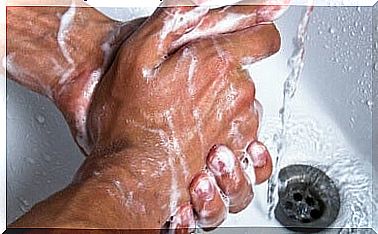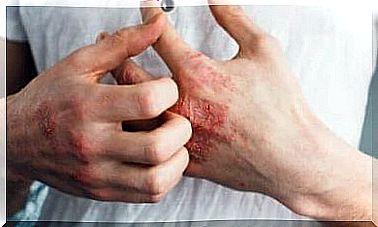Recognizing And Treating Worms In The Intestine
Worms in the intestine are parasites, but not all are dangerous. Learn how to recognize it and what to do about it.

Our pets occasionally have worms in their intestines, which we usually prevent with a preventive “worming cure”. But we humans can also have worms in our intestines . Since these are rare in humans, we hardly pay any attention to them and so a worm infestation is often carried off.
How do I recognize worms in the intestine?
Worms in the intestines can be identified quite easily in you (and also in your pet) – if you look for them.
The likelihood of diagnosing worms in your cat’s intestines while cleaning the litter box is higher than making the same diagnosis on yourself.
Of course, a stool sample is usually relatively clear, but there are other signs that can indicate worms in the intestines and require a closer look at your stool.
The following symptoms are possible:
- Itching of the anus
- Loss of appetite
- diarrhea
- stomach pain
- Bleeding
- Weight loss
- fever
- nausea
- Anemia
- Difficulty breathing / coughing
- Convulsions / colic
Of course, not all of these symptoms occur together, because depending on which worms live in the intestine, the symptoms also differ.
However, if you do recognize some of the signs listed earlier, you should see if you can find any other signs of worms in your intestines in your stool.

Which worms affect humans?
An infestation with worms always occurs only through the eggs, which enter the human body through contaminated food or contact with infected animals.
Basically, worms in people’s intestines can be divided into three large groups :
- Maggots
- Roundworms
- Tapeworms
Pinworms are the most common worms in the intestine, and even in our part of the world, on average, every adult suffers from them once in their life.
They are relatively harmless and only lead to annoying complaints such as a badly itchy anus.
Roundworms, on the other hand, are more dangerous because they can grow to be almost half a meter long, blocking the bile ducts or pancreas, which can lead to extremely painful colic.
Tapeworms are the most dangerous worms in the intestine because they can be up to 20 meters long and attach to the inner walls of the intestine with a kind of suction cup.
The infestation often leads to the formation of cysts in other organs, so that the brain can also be affected.

prevention
A good precaution is good hygiene. The worm eggs like to set it up at home under their fingernails.
Since you cannot see them, thorough and frequent hand washing is the only way to drive them away and to avoid spreading them further via your hands and objects you touch (e.g. doorknobs).
Thoroughly washing food that could be infected with worm eggs is another step in prevention. This includes fertilized vegetables or fruits from wild collection, for example blackberries (keyword: fox tapeworm).
Some worm eggs are also inhaled through the air and spread through the lungs. There is little that can be prevented here. In some exotic holiday destinations, worms are also spread by mosquitoes or flies.

therapy
If you suspect that you have worms in your intestines, please see a doctor and have yourself examined. The doctor will then determine which worm species your new pets belong to and prescribe an effective drug.
Depending on the remedy, these drugs kill or only paralyze the worms so that they can be excreted during the next bowel movement.
Since you as the host could also have infected other people in your area , everyone close to you should take a wormer.

Home remedies for worms
Basically, you should always consult a doctor if you suspect worms in the intestine. However, you can support the wormer he has prescribed with home remedies to underpin the success of the treatment.
The following home remedies can also be used:
- Kernels of papaya
- Grapefruit seed extract
- Raw garlic
- Onion juice
- Coconut oil
Please note that you can only kill worms reliably with specific medication and that you should only use such home remedies as a support and never exclusively.
This also applies to your pets, who deserve reliable worm treatment as much as you do.









